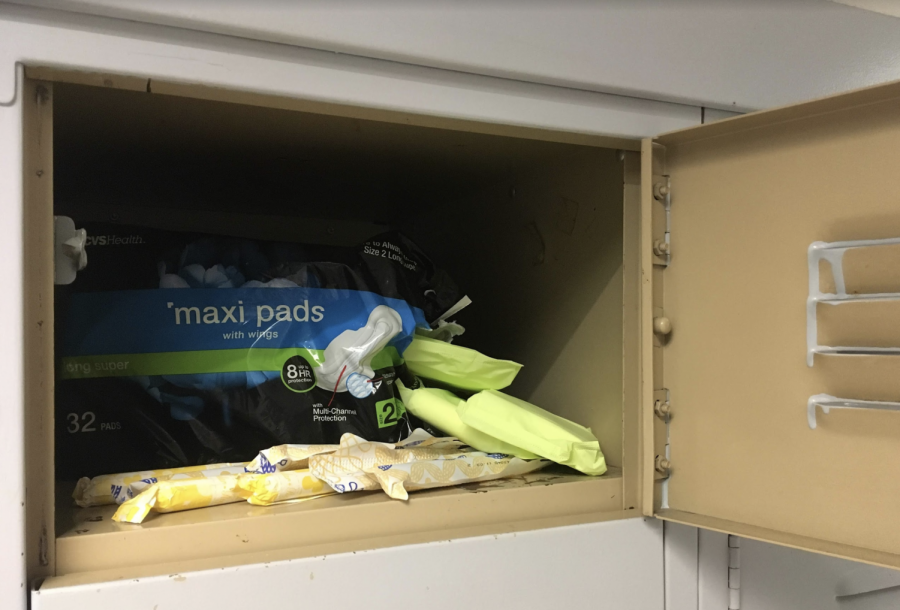CSA Launches Free Menstrual Product Initiative
While a locker with free menstrual products has been a long-awaited service at Fordham, CSA hopes to continue improving it this year.
August 25, 2019
After several town hall discussions surrounding the need for readily available menstrual hygiene products, Fordham’s Commuting Students Association (CSA) has worked to provide a safe and inexpensive option for students who suddenly get their periods while on campus: offering free menstrual products in Lowenstein lockers.
Former CSA Treasurer Sally Mo, Fordham College at Lincoln Center (FCLC) ’20, spearheaded the “Go with the Flow” initiative last spring. After several semesters of students airing their complaints about the lack of available products, CSA entered a “trial run” of their initiative last spring, in which products were stocked in an unlocked fifth-floor Lowenstein locker.
“I’ve been on the CSA E-board for the past two years and it’s been something that we talked about often in our meetings and town halls,” Mo said.
CSA President Mayra Guallpa, FCLC ’22, emphasized the importance of having easy-to-access menstrual products for students who need them so as not to sacrifice their studies. “In other schools, they have menstrual products more readily available, so it was something that when you get to Fordham you say, ‘Well, what happened here?’”
As a private institution, Fordham is exempt from the 2016 bill Mayor Bill de Blasio signed requiring public schools to provide free menstrual products. However, other private schools like New York University and Columbia University have free products available on campus, causing CSA to feel that students here experience the same treatment.
Guallpa noted that one of the obvious hurdles for getting the project off the ground was funding. “We reallocated the money we were already budgeted for a coffee break,” she said. “So we didn’t do the coffee break, and we bought the menstrual products.”
The project is funded entirely by CSA, who receives their budget from the Office of Student Involvement. The cost of pads, tampons and locker rental fees for each floor with lockers in Lowenstein was factored into their fall 2019 budget. Members of the club volunteer to restock the supplies as often as demand needs to be met.
“Something we wanted to make sure of was that it was offered for free, because we didn’t think that people should pay for it,” Mo said. “We thought that as commuters, it would be hard for us if someone forgot a pad. Not everyone necessarily has the money or the time to run to CVS and buy a whole new pack, and people may not be necessarily comfortable asking others if they had their products with them.”
Mo also acknowledged that the support from other on-campus clubs has been encouraging, particularly the discussion about free menstrual hygiene products on campus at last spring’s United Student Government (USG) debate, which she claims made a small difference in the dialogue between students and staff.
“We did go to a USG meeting to talk about why we thought our project was important,” Mo said. “USG decided to support us in our initiative, which I think did help the Office of Student Involvement approve our appeal for the locker.”
An issue that the group continues to address is marketing. Due to Fordham policy that prohibits locker and wall decorations and posters, the locker with the menstrual products is not easily noticeable to an average student.
Guallpa did say that going into the fall, one solution they have in mind is to stock their supplies in the same lockers on each floor they are permitted to use for the initiative. “We want to have consistent locker numbers because we want people to remember,” she said.
In their initial reallocation request, Mo emphasized that the project is meant to help all students, regardless of their residential status. “Although we are the ‘Commuting’ Students Association, we are opening up access to all,” Mo said.
“A point that we wanted to make is that this is a temporary solution,” Mo said. “I think that in the future, it would be nice for the school to have products in bathrooms.”














